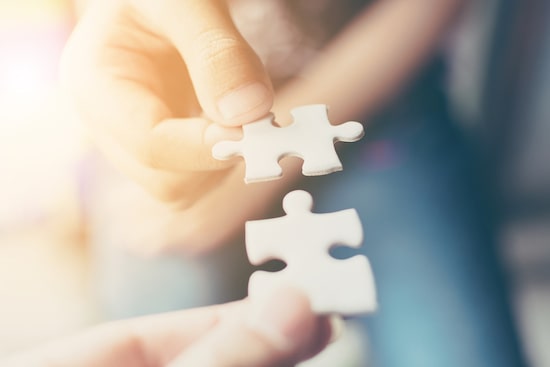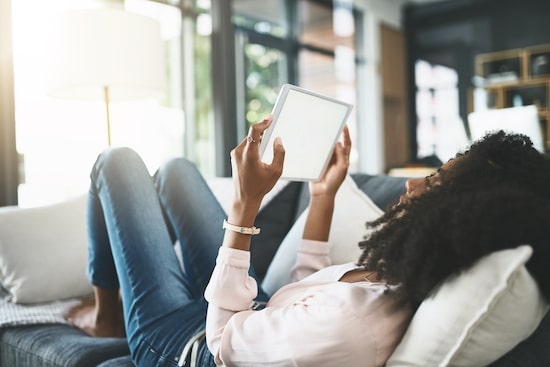Relationship Counseling
Are You Longing For A More Meaningful Connection?
 Has your current relationship—or lack thereof—left you feeling unloved, unappreciated, or unwanted? Comparing yourself or your relationships with others might cause relationship anxiety. Your dissatisfaction with your relationships may also be causing symptoms of depression, such as fatigue, negative thought patterns, or sleep disturbances.
Has your current relationship—or lack thereof—left you feeling unloved, unappreciated, or unwanted? Comparing yourself or your relationships with others might cause relationship anxiety. Your dissatisfaction with your relationships may also be causing symptoms of depression, such as fatigue, negative thought patterns, or sleep disturbances.
If you’re single, you may have grown increasingly focused on finding the right person for you, and you may be afraid that you’ll never find them. On the other hand, your current relationship might be a source of discontent, and you may wonder if there is someone else out there for you. You may feel resentful or angry if your partner isn’t meeting your expectations, especially if you’ve invested a lot in the relationship. At the same time, you may think your partner’s expectations are unreasonable—that nothing you do will ever be enough.
If the distance between you and your partner has been growing, you may have become increasingly sensitive to any new signs of relationship problems. Everything your partner says or does might seem significant, and you may lie awake at night analyzing every exchange, to the point that you feel miserable or overwhelmed rather than supported and valued.
Even if your search for love has left you feeling unhappy or unworthy, there are things you can do to increase your chances of satisfying companionship. With the help of an understanding and knowledgeable therapist, you can set the stage for the type of relationship you’ve been hoping for: one in which you have healthy boundaries, respectful communication, and feel truly valued and satisfied.
Relationships Are Difficult For Everyone
Movies and TV shows make relationships look easy, but partnerships in the real world are quite different. Unlike our favorite characters on the big screen, most of us haven’t achieved our own “happily ever after.” According to research by the National Science Foundation, 35% of U.S. adults have no steady partner. And those who are married have a 50% chance of eventually divorcing, according to the American Psychological Association.
Why do so many relationships end in failure? Unreasonable expectations are one cause, with disappointment arising when our partners fail to measure up to them. And these same hopes can cause us to focus more on finding the right person than being the right person.
 If you’re like most people, the relationship models you encountered in childhood weren’t perfect. And when you’ve never known any other way of interacting, you may carry some problematic patterns and beliefs that you learned as a child into your adult relationships. For many people, this is a recipe for repeating the same unsatisfying relationships again and again without knowing how to stop.
If you’re like most people, the relationship models you encountered in childhood weren’t perfect. And when you’ve never known any other way of interacting, you may carry some problematic patterns and beliefs that you learned as a child into your adult relationships. For many people, this is a recipe for repeating the same unsatisfying relationships again and again without knowing how to stop.
The fear of being hurt makes many people wonder whether the search for a fulfilling relationship is worth the effort. However, those who persevere with the support and guidance of a skilled relationship counselor can increase their chances of finding and maintaining satisfying relationships.
Relationship Counseling Can Help You Create Closeness
As a professional relationship counselor, I can help you redirect your search for love and acceptance in a healthier direction. Before you can set this new course, though, you must first make sure you understand what’s driving your unhappiness. To that end, we’ll explore the problems that tend to pop up again and again in your relationship or dating life.
As you build awareness of your sticking points and triggers, you’ll also get a better understanding of your needs. This part of the process is particularly important if you have been focusing a lot of your energy and attention on your partner instead of prioritizing your own happiness and wellbeing.
Once you’re able to define and articulate your goals, you can start setting healthier relationship boundaries. If you’re a people-pleaser, for example, your desire to avoid conflict may have stifled your ability to communicate what you want. To help you break free of that pattern, we can explore small changes you can make to start putting yourself first. And if you don’t know what a healthy boundary looks like, I will provide examples and structured exercises to help you define boundaries that make sense for you.
Poor communication underlies many relationship problems. Rather than reacting emotionally or passive-aggressively when your partner upsets you, I can help you learn to clearly and calmly communicate your needs. This will help you avoid and de-escalate conflict while empowering you to live more authentically.
 Using a technique called cognitive-behavioral therapy (CBT), I can also teach you to question the assumptions you bring to your relationships. If the lessons you learned during your early relationships are no longer serving you, therapy can help you see your partner for who they really are—not who you expect or fear them to be.
Using a technique called cognitive-behavioral therapy (CBT), I can also teach you to question the assumptions you bring to your relationships. If the lessons you learned during your early relationships are no longer serving you, therapy can help you see your partner for who they really are—not who you expect or fear them to be.
No matter what direction your relationship takes, the awareness, self-esteem, and new boundaries you’ll develop in therapy can set you on a healthier path. If your current relationship starts to improve, your anxiety and doubts will ease as you build on each success. If, on the other hand, your partner (or potential partner) is unwilling or unable to meet your needs, you’ll have the clarity and confidence to move on.
As you consider relationship therapy, you may have some concerns. . .
My partner is the one causing all the relationship problems. Shouldn’t they be in therapy instead of me?
If you are preoccupied with convincing your partner to change their behaviors, you will be disappointed again and again. There will be many things outside of your control during your search for love, but there are also many things you can do to contribute to the health of your relationship. By taking responsibility for your own happiness, you’ll empower yourself to make changes that can bring you closer to the type of relationship you want.
Do you offer marriage counseling or joint sessions?
Before you can find happiness with another person, you must first find happiness as an individual. So focusing on yourself first can increase your long-term chances of success. If you do decide to attend counseling together at some point, I can recommend someone for you to work with. However, they may end up recommending that you seek out individual relationship therapy at the same time. By attending relationship counseling by yourself now, you will have greater clarity regarding what you need from your loved one (or whether your current relationship is even right for you) before working together.
 What if I’m looking for non-romantic relationship help?
What if I’m looking for non-romantic relationship help?
All relationships are messy and difficult, not just romantic ones. Many people struggle in their relationships with friends, children, parents, or extended family. The therapeutic strategies for improving platonic relationships are essentially the same as those for romantic ones. Managing expectations of others and improving communication are important steps to healthier relationships. If you would like to cultivate a better relationship with a family member, friend, or other loved one, I can help.
Take Control Of Your Own Happiness And Relationship Satisfaction
I’ve been helping individuals achieve mutually fulfilling relationships for more than 20 years. I invite you to contact me to ask any questions you may have about relationship counseling and make sure we are a good fit. Or if you’re ready to get started right away, you can call 404-585-4940 to schedule your first appointment or book online.
Recently on the Blog
5 Tools For Effective Communication
Good communication is the foundation of healthy relationships, whether personal or professional. It does not matter whether you are talking to a colleague, a family member, or a friend—how you express yourself can impact your connection.
Learning from your Relationship Mistakes so you Don’t Repeat Them
Relationships are complicated, right? Whether they are romantic, familial, or platonic, any relationship can come with challenges. Sometimes, we make mistakes that affect the relationship.
Are You Losing Yourself in a Relationship? – 3 Keys to Finding Your Voice
Being in a relationship can be very fulfilling. But not all relationships are healthy and thriving. Losing yourself in a relationship may be a signal that your relationship is unhealthy or a sign that you feel some insecurity and anxiety about losing the relationship....
Getting Over a Breakup Is a Battle – How Can You Prevail?
Everyone has experienced heartbreak before. It can be a shock when someone you love has decided to end the relationship. When you are dealing with a broken heart from a committed dating relationship, it can feel like time has stopped. Suddenly, nothing matters much,...




